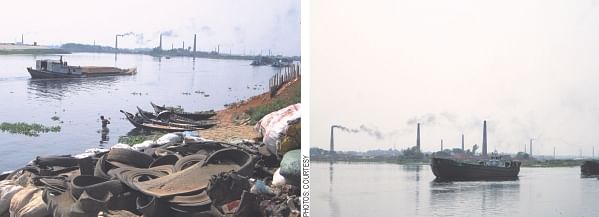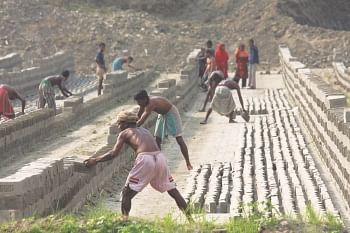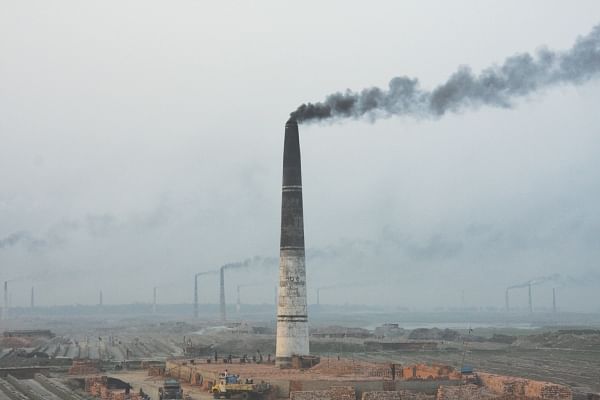| Home - Back Issues - The Team - Contact Us |
 |
| Volume 11 |Issue| 15 | April 13, 2012 | |
|
|
Environment
A Brick Wall in Change Brick kilns go on emitting black, poisonous smoke Probir Kumar Bidhan
It's almost as if no one cares that the chimneys at the brickfields on the outskirts of the capital exhaust mainly black smoke. These furnaces have been set up in almost every corner of Dhaka – along the highways and the rivers surrounding the mega city – and are in operation seven months a year. The number of such brickfields is increasing gradually at a time when air pollution is severely hampering the lives of people and the environment. The presence of the brickfields is higher around the newly-built urban areas and in rural areas where the authorities cannot stop them so easily.
But we can see that either due to the reluctance, inefficiency or inability of the authorities and the muscle power of the owners of the illegal and unauthorised brick kilns the scenario has not changed over the years. With the help of their money and connections, the influential owners ensure that they can install brickfields anywhere they want, using wood or abandoned rubber tyres, instead of coal to burn bricks and can collect earth from anywhere and use those for making bricks. It seems that they have a total disregard for the country's existing laws – which are not that stern to begin with – and are willing to threaten those who protest their operations. They have been continuously hammering the environment because they want to take advantage of the poor execution of laws, making large profits during this time of rapid urbanisation when bricks are a must for any construction. Air pollution has recently become a much talked about issue with most people in the cities facing breathing problems. In Dhaka, the mega brickfields around the city are a major contributor to air pollution.
In several global studies carried out in recent years, Dhaka has secured a position among the least liveable cities across the globe because of its pollution, mainly in air and water and lack of civic sense. The sorry state of Dhaka is amplified by the brickfields around the city – mainly in Aminbazar, Ashulia and Basila – where hundreds of kilns beside communities and rivers have been operating unabated for years. The law, however, clearly states that such brickfields cannot be set up within three kilometres of municipal areas or forests. More and more localities are turning into deserts. The scenario clearly exposes the 'business-friendly' manner of the government and the well-established aggression of the socially influential individuals and their cadres. It also reflects that the people, except for some green groups, are remaining silent against the culprits, fearing possible threats. In addition, there is hardly any coordination among the authorities concerned to contain undisciplined growth in establishing brickfields or to bring those under regulation. Thus, it seems we – the people and the government – have no concern for what's going to happen after several years to the air and the lands currently being used by the brick kilns. We also don't seem to care about the extent of health-related complications we are going to face. What will happen if we fail to take any significant and revolutionary initiative against the destroyers of the environment right away? Development and progress is needed, cherished and indeed praiseworthy. But it should be checked in a planned manner so that the people do not fall victim to its side-effects.
Copyright
(R) thedailystar.net 2012 |


